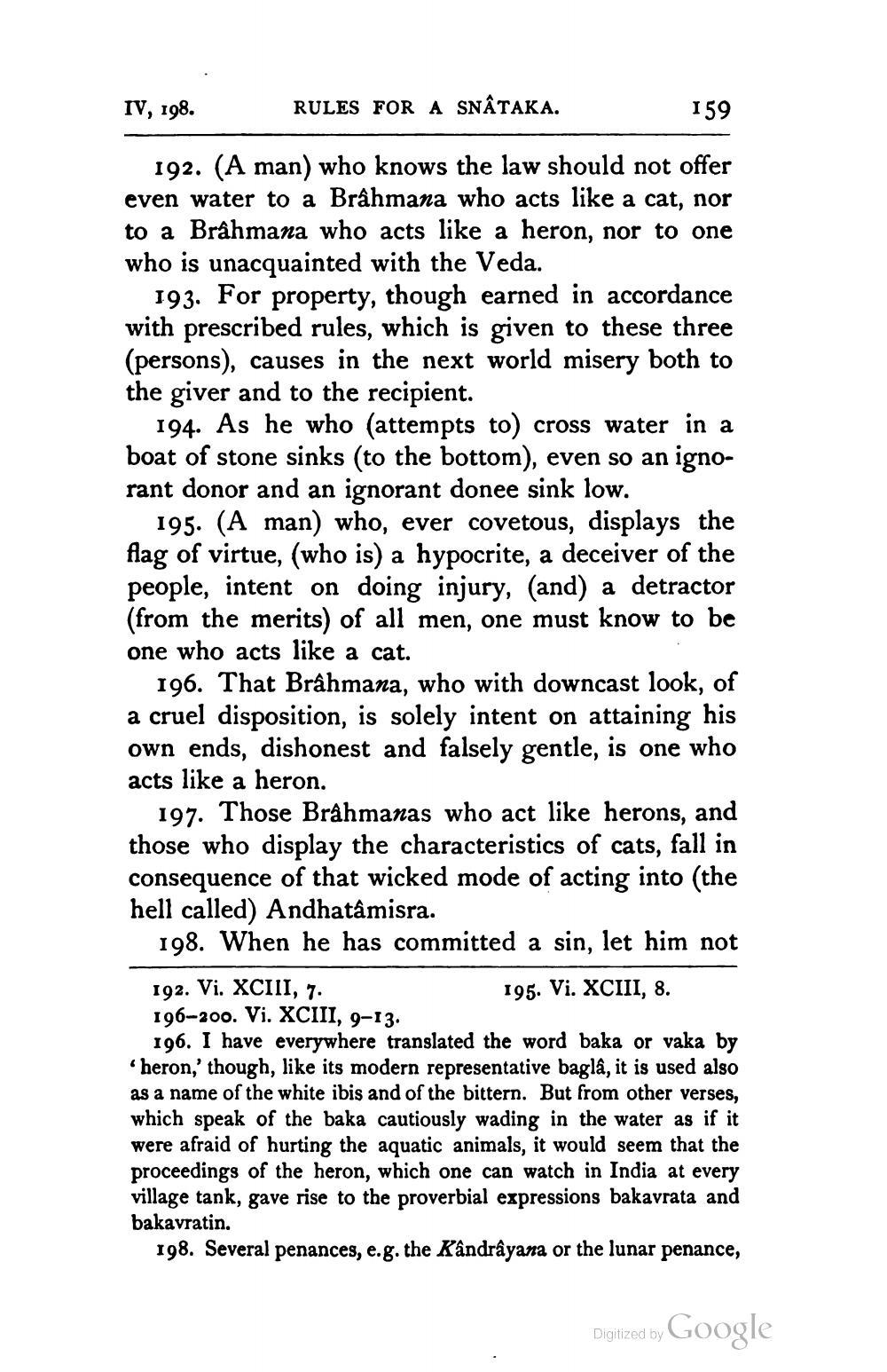________________
IV, 198.
RULES FOR A SNÂTAKA.
159
192. (A man) who knows the law should not offer even water to a Brâhmana who acts like a cat, nor to a Brâhmana who acts like a heron, nor to one who is unacquainted with the Veda.
193. For property, though earned in accordance with prescribed rules, which is given to these three (persons), causes in the next world misery both to the giver and to the recipient.
194. As he who (attempts to) cross water in a boat of stone sinks (to the bottom), even so an ignorant donor and an ignorant donee sink low.
195. (A man) who, ever covetous, displays the flag of virtue, (who is) a hypocrite, a deceiver of the people, intent on doing injury, (and) a detractor (from the merits) of all men, one must know to be one who acts like a cat.
196. That Brâhmana, who with downcast look, of a cruel disposition, is solely intent on attaining his own ends, dishonest and falsely gentle, is one who acts like a heron.
197. Those Brahmanas who act like herons, and those who display the characteristics of cats, fall in consequence of that wicked mode of acting into (the hell called) Andhatâmisra.
198. When he has committed a sin, let him not 192. Vi. XCIII, 7.
195. Vi. XCIII, 8. 196-200. Vi. XCIII, 9-13.
196. I have everywhere translated the word baka or vaka by 'heron,' though, like its modern representative bagla, it is used also as a name of the white ibis and of the bittern. But from other verses, which speak of the baka cautiously wading in the water as if it were afraid of hurting the aquatic animals, it would seem that the proceedings of the heron, which one can watch in India at every village tank, gave rise to the proverbial expressions bakavrata and bakavratin.
198. Several penances, e.g. the Kandrayana or the lunar penance,
Digitized by Google




